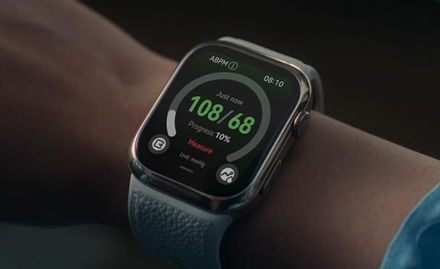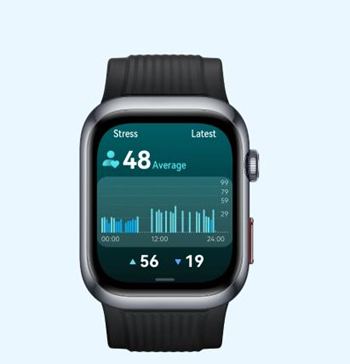High
blood pressure, also known as hypertension, is a prevalent condition that poses
significant health risks. Left unmanaged, it can lead to heart disease, stroke,
kidney failure, and other serious health problems. One key yet often overlooked
factor in managing blood pressure is stress. Chronic stress can contribute to
elevated blood pressure, but by adopting stress reduction techniques, you may
be able to lower your blood pressure and improve overall heart health. This
blog explores how stress impacts blood pressure, effective stress reduction
methods, and additional lifestyle changes to help manage your blood pressure.

How
Stress Affects Blood Pressure
When
you're stressed, your body releases stress hormones like adrenaline and
cortisol, which trigger the "fight or flight" response. This
physiological reaction increases your heart rate and constricts blood vessels,
temporarily raising blood pressure. While this response is useful in short
bursts, prolonged or chronic stress keeps your body in a constant state of
alertness, which can lead to sustained high blood pressure.
Over
time, constant stress can damage blood vessels and the heart, increasing the
risk of stroke, heart disease, and kidney problems. If left unchecked, this can
create a dangerous cycle of stress and high blood pressure. Monitoring your
blood pressure can help you understand how your body responds to stress.
Devices like the Huawei Watch D2 allow you to track your blood pressure
throughout the day, providing useful insights into how stress affects your
body.
Can
Stress Reduction Techniques Really Lower Blood Pressure?
Yes,
stress reduction techniques can significantly lower blood pressure. Several
scientifically-backed methods, such as mindfulness and progressive muscle
relaxation, have been shown to reduce stress and improve heart health.
The
Impact of Mindfulness on Blood Pressure
Mindfulness
involves focusing on the present moment, allowing yourself to be fully aware
without judgment. Practicing mindfulness can reduce the body's stress response,
leading to lower blood pressure. Mindfulness techniques include deep breathing,
meditation, and yoga. These practices help promote relaxation and reduce
anxiety, which can lead to sustained reductions in blood pressure. Studies have
demonstrated that mindfulness-based stress reduction (MBSR) programs can lower
blood pressure and improve heart health over time. By incorporating mindfulness
into your daily routine, you may experience lower levels of stress and improved
blood pressure regulation.
Progressive
Muscle Relaxation and Its Benefits
Progressive
muscle relaxation (PMR) is a technique that involves tensing and relaxing
different muscle groups in the body. This practice helps release physical
tension and promotes relaxation, which can reduce stress and lower blood
pressure. When you're under stress, your muscles tend to tighten, which can
increase blood pressure. PMR helps counteract this response by promoting a
state of relaxation. To practice PMR, start
by focusing on one muscle group at a time (such as your hands, arms, shoulders,
or legs), tense the muscles for a few seconds, and then slowly release the
tension. Regular practice of PMR can enhance your body's ability to manage
stress more effectively and lead to a decrease in blood pressure over time.
Other
Lifestyle Changes That Help Lower Blood Pressure
While
stress reduction is a key factor in controlling blood pressure, other lifestyle
changes can also significantly contribute to better blood pressure management.
Dietary
Adjustments for Better Blood Pressure
Your
diet plays a crucial role in managing blood pressure. A balanced diet that
includes a variety of fruits, vegetables, lean proteins, and whole grains can
help keep your blood pressure in check. Additionally, reducing sodium intake is
critical for managing high blood pressure. Avoiding processed foods, which are
often high in sodium, and opting for fresh, whole foods can make a significant
difference. Incorporating food that reduces blood pressure, such as those rich in
potassium—like bananas, spinach, and sweet potatoes—can further help regulate
blood pressure. Potassium helps counteract the effects of sodium and relaxes
blood vessels, promoting healthy circulation.
The
Role of Physical Activity in Lowering Blood Pressure
Regular
physical activity is another effective way to lower blood pressure. Exercise
strengthens the heart, making it more efficient at pumping blood, and helps
reduce the pressure on your arteries. Engaging in moderate-intensity activities
like brisk walking, cycling, or swimming for at least 150 minutes per week can
help manage blood pressure levels. Exercise
also promotes the release of endorphins, which are natural mood lifters that
help reduce stress. Incorporating physical activity into your daily routine can
help keep your blood pressure within healthy limits and contribute to overall
well-being.

How
to Monitor Your Blood Pressure While Reducing Stress
To
assess the effectiveness of your stress reduction techniques and other
lifestyle changes, it's important to monitor your blood pressure regularly.
Advanced devices like the Huawei Watch D2 offer continuous blood pressure
monitoring, allowing you to track your blood pressure 24/7. The Huawei Watch D2
provides on-the-go measurements, as well as detailed health reports, including
average blood pressure readings and heart rate data. By using a device like
this, you can stay informed about your blood pressure trends and adjust your
stress reduction practices accordingly. Regular monitoring can help you
identify which methods are working best for you and ensure that your blood
pressure remains within a healthy range.
Conclusion
Reducing
stress is a powerful and effective way to lower blood pressure and protect your
heart health. Techniques like mindfulness and progressive muscle relaxation can
help reduce the body's stress response, leading to lower blood pressure.
Additionally, adopting a heart-healthy diet and engaging in regular physical
activity can complement your efforts in managing blood pressure. Monitoring your blood
pressure with tools like the Huawei Watch D2 allows you to track your progress
and make adjustments to your routine as needed. By combining stress reduction
strategies with other healthy lifestyle changes, you can take control of your
blood pressure and significantly reduce the risk of serious health
complications related to hypertension.
